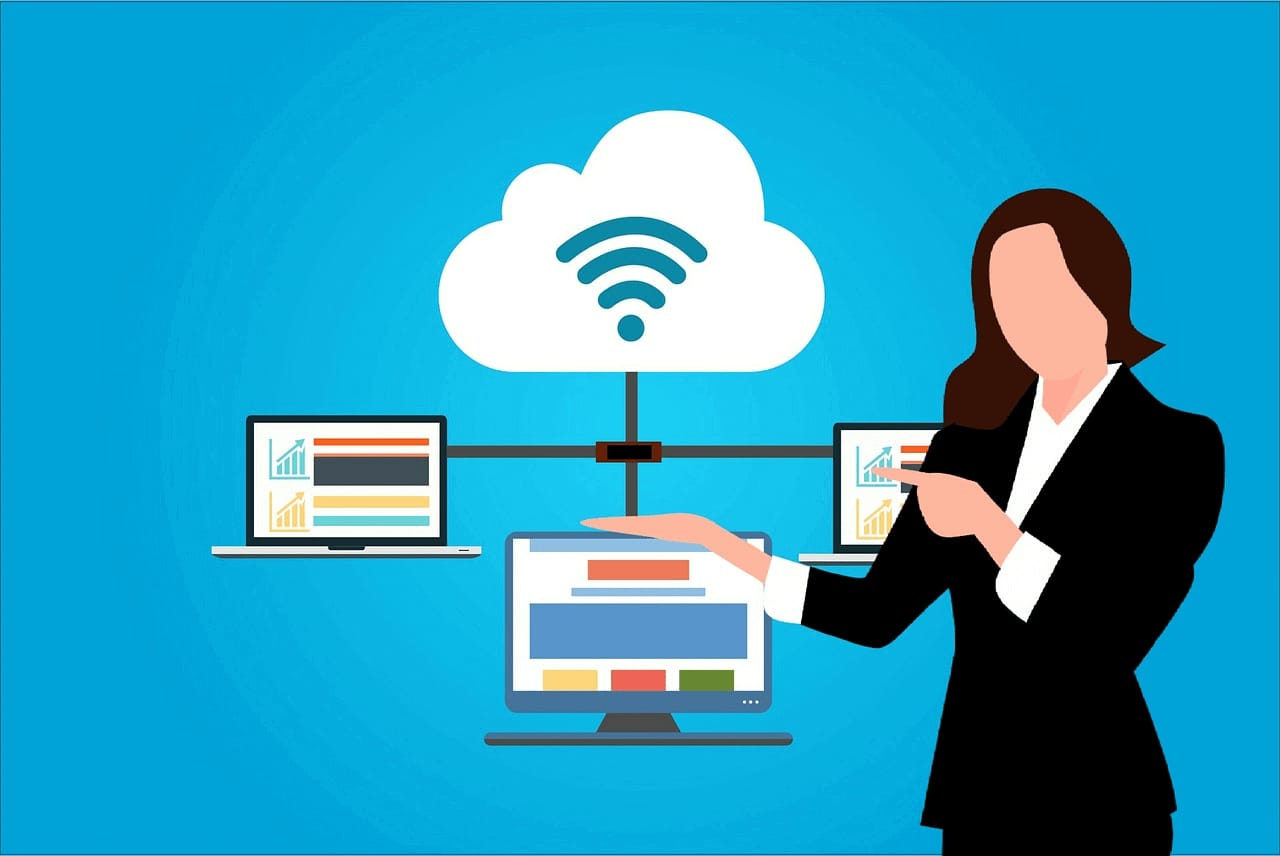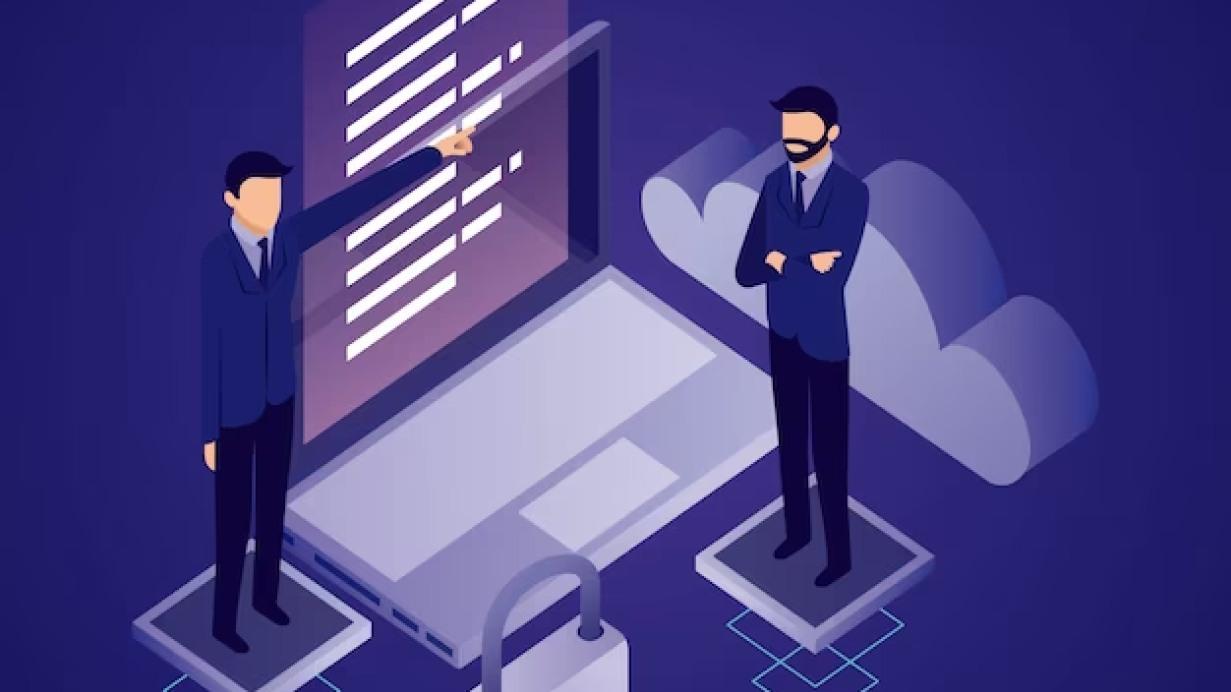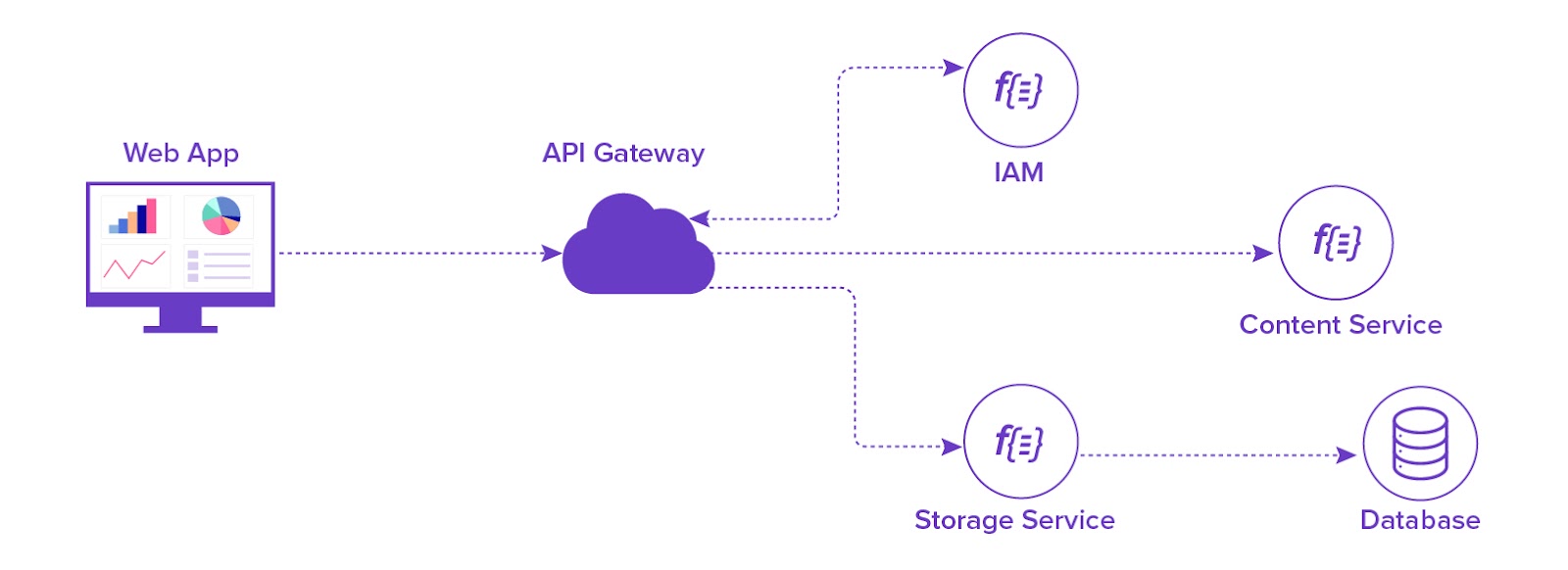Cloud computing is fast becoming an indispensable tool in the business world as one of the most reliable and effective resources for management. The on-demand storage system is making massive waves across industries, delivering resounding commercial success. Understandably, the accounting sphere is no stranger to its unique advantages.
As a matter of fact, given the increasingly globalized world we live in, cloud accounting software is well-positioned to revolutionize the future of accounting. The market is growing at a rapid pace and is estimated to hit $4.25 billion by 2023; it is currently valued at $2.62 billion.
Not only this, nearly 67% of accountants rely on cloud accounting solutions since it cut down labor costs by up to 50% when compared to locally installed accounting software. Moreover, close to 58% of large-scale and 78% of small businesses leverage cloud accounting services to stay ahead of the curve.
This cost-effective and efficient solution allows companies to access their financial data using any device with an internet connection, regardless of the time and place. The result is that businesses can onboard 5X as many clients using cloud accounting services compared to companies that rely on traditional accounting software.
There are innumerable other ways cloud accounting software is transforming the future of accounting. In this article, we'll take a look at some of its exciting benefits. We'll also explore the major challenges businesses are facing in the accounting industry and find out how cloud technology is helping overcome them.
5 Key Challenges Businesses are Facing in Accounting
Given the demand for technologically advanced solutions in the contemporary business world, company owners, bookkeepers, accountants, and managers are increasingly ditching age-old accounting practices in favor of cloud technology. The primary objective is to stay competitive in the current age of digitalization and be future-ready.
However, another important driving factor for accounting firms transitioning to the cloud involves the worrisome challenges they face on a day-to-day basis when dealing with conventional methods of maintaining tax reports and storing financial data.
Here's shining a light on these pertinent challenges and understanding how cloud accounting software addresses them:
1) Inaccessibility of accounting data on-the-go
Most CPAs work around the clock to maintain crucial financial data. Evidently, their work responsibilities are not just confined to the hours they are present in the office and might require attention even during the wee hours of the day or night. However, since traditional accounting software cannot be accessed remotely, they often fail to address urgent tasks on priority.
This lack of accessibility has continued to pose a challenge to accountants even in the COVID-stricken times and demands to be dealt with proactively — considering 77% of accountants wish to continue working remotely in some capacity. However, that spells another setback for the accounting industry since remote work has so far been dependent on telework, and many companies believe it could result in an increased risk of cyberattacks.
2) Increased operational expenses and outdated technology costs
Conventional on-premise accounting software is more expensive to maintain and has other issues like lack of remote access to data, need to create backups, etc. They take a longer time to set up, and giving access to data can be challenging as it is on that particular machine. Also, you are often forced to upgrade to the latest versions at additional costs, which can be heavier on your pockets. Not to mention, these solutions are not customized to serve the functionalities you need.
In addition to this, traditional accounting software requires frequent maintenance after installation. While large firms may be equipped to handle operational expenses, small businesses tend to struggle in onboarding advanced IT infrastructure for maintenance. This is bound to impact accounting processes negatively.
3) Inefficiency in handling accounting data manually
There's no end to the volume of financial data accountants handle on a daily basis. It usually involves painstaking manual labor on their part where they indulge in a slew of redundant tasks like filtering necessary data, editing it as per the client's requirements, and sharing it with fellow accountants — all of which play a crucial role in gleaning clarity on tax filing documents and ensuring accurate reporting.
Manual data processing demands appreciable storage space and ends up consuming a major part of an accountant's day. The other disadvantage is that this financial data can hardly ever be extracted in a usable format.
4) Vulnerability to security risks
Almost all of the accounting data that accountants and bookkeepers deal with is confidential. This includes a wealth of sensitive information, from bank account details to credit card data. Naturally, any security vulnerabilities or loss of financial data can spell enormous trouble for accounting professionals.
The bad news is that outdated accounting software is not equipped to counter cybersecurity risks. In fact, given how poorly data is stored, there is a heightened risk of cyber-attacks and frequent unauthorized system breaches. This is especially true when it comes to small accounting firms that lack the elaborate cybersecurity defense protocols of large firms and tend to be primary targets of cybercriminals and hackers.
Moreover, older accounting software makes it considerably more difficult to recover data once lost.
5) Financial losses and discontinuity resulting from unprecedented risks
Outdated accounting technologies are prone to disruptions in business continuity. This usually arises from technical malfunctions, system errors, or more serious events like natural disasters. Given the unpredictability of such challenges, businesses can remain shut down for hours and days. This downtime leads to discord among teams and ends up impacting the efficiency and productivity in an accounting work environment. Needless to mention, prolonged discontinuity can result in major financial losses.
Outdated accounting technologies are prone to disruptions in business continuity. This usually arises from technical malfunctions, system errors, or more serious events like natural disasters. Given the unpredictability of such challenges, businesses can remain shut down for hours and days. This downtime leads to discord among teams and ends up impacting the efficiency and productivity in an accounting work environment. Needless to mention, prolonged discontinuity can result in major financial losses.
5 Benefits of Cloud Accounting Software for Accountants and Business Owners
Cloud technology has proven benefits for accountants and business owners, especially when you consider accounts management from the standpoint of business expenditure. By investing in cloud-based accounting software like Dext, companies can readily adapt to a paperless environment, reduce manual labor, and cut down on extraneous costs. In fact, according to a report, 87% of businesses experienced business acceleration from using cloud accounting software.
Here's looking at some of the game-changing benefits cloud-based accounting software is known to offer companies:
1) Time-saving, error-free, and easily shareable
Cloud-based accounting software automates manual and repeatable tasks, saving bookkeepers hours and days. New-age accounting techniques allow financial data to be directly captured from images, bank statements, email messages, and even online sources. Since they are editable and free from human intervention, there's little chance of any form of error creeping into financial entries.
The best part is, the data is saved on the cloud and is accessible for viewing, editing, or sharing with authorized personnel without having to create multiple files. This ensures seamless collaboration between different teams.
What’s more, accountants can analyze financial data in real-time, spot strategic trends, and gain useful insights to respond proactively to disruptive events.
2) Airtight security and regular updates
By moving valuable financial data to the cloud, business owners and bookkeepers can significantly minimize the risk of cyber thefts. Reliable cloud accounting software comes preloaded with a plethora of security measures to keep the privacy and confidentiality of your data intact. Security firewalls, data breach detection, and encryption software are in place to prevent unauthorized access to your accounting data.
Not only this, cloud-based accounting software automatically backs up your data as you go and can be accessed even in the event of natural calamities like floods or earthquakes. Regular security updates in real-time ensure that your software is up to date with the latest tax rates, contemporary features, and other necessary functionalities.
3) Uninterrupted access anywhere, anytime
Cloud technology facilitates accessibility 24×7 from anywhere, using any internet-enabled device. All you need is authorized access to the hosted environment. This uninterrupted access to data allows accountants and bookkeepers to service multiple clients at once, and thereby growing their business.
4) Customizable and cost-effective
When you opt for cloud accounting software, you tend to reap a multitude of benefits by leveraging the unique accounting functionalities your business needs. No complicated installation or maintenance procedures are involved, making cloud accounting software exceedingly cost-effective and easy to use.
In fact, cloud-based accounting software allows accountants to leverage add-ons specific to businesses so as to manage payroll, invoicing, tax filing, and oversee customer engagement — all from one place. Moreover, now many tools are developed and available that handle the entire payroll actions that comprise factoHR, Avanti, PayUSA, and many more that administer tax processing, reimbursement, and all other finance-related concerns to make the accounting process more simplified and centralized for all the businesses.
5) Flexible, scalable, and accurate
Cloud accounting software is the best fit for business owners who lack an accounting background. Since most accounting functions are automated, they require minimal to no effort on the user's part. All the data you input is stored in your cloud accounting file and provides a comprehensive view of your company's finances, thus, contributing to informed decision-making. This also increases inaccuracy in calculations and expense reporting.
Considering the unparalleled scalability of cloud-based technology, businesses needn't look for accounting solutions elsewhere if they expand. They can flexibly leverage third-party integrations to cater to their desired goals. For instance, cloud accounting software is compatible with almost every third-party accounting software on the market, allowing businesses to handle all operational aspects — payroll management to CRM — from one place.
Why Businesses Should Adopt Cloud-based Accounting Software
Staying up to date with emerging technologies that have the potential to impact the scalability and performance of your business is no longer a means to remain competitive — it’s a necessity.
Businesses actively investing in technologically advanced accounting solutions are at the forefront of their professions and well-positioned to stand the test of time.
As per Peter Weill, who is the chairman at MIT’s Sloan Center for Information Systems Research and senior research scientist, “digitally-savvy companies outperform the competition by at least 34 percent in the areas of market cap growth, return on assets, and revenue growth.”
As more and more businesses are switching to cloud solutions, they are able to push beyond existing limitations and establish a strong footing in their respective industries.
To that end, here are five reasons why you should consider adopting cloud accounting moving into the future:
- Companies that maintain desktop-based accounting software are usually tied to contractual licensing obligations. They can switch to a company-wide, remotely accessible database, opt for affordable monthly subscriptions, and save on costs and space.
- For businesses looking for sustainable solutions and are concerned about their environmental footprint, as there is no need to print anything since all documents are saved digitally, cloud-based accounting software provides a huge advantage, considering it eliminates the need for physical storage. Clients also do need to travel to submit their documents as they can simply send them online. This lack of traveling also reduces the environmental footprint.
- Cloud accounting software does away with the IT infrastructure needed to maintain and update traditional accounting systems. They are updated automatically and do not require manual maintenance.
- Companies on the precipice of rapid growth do not have to undergo needless financial drain to expand their accounting systems or invest in expensive hardware maintenance.
- The ease of accessibility with cloud accounting software allows large-scale companies with a global presence to achieve overarching goals. This would help establish cohesion among branches. Smaller companies, on the other hand, stand to cut down on inflated costs due to reductions in extra time consumed and so on. Also, as previously mentioned, there are forced upgrades for on-premise accounting software that also lead to more costs.
Grow Your Business with a Cloud Accounting Software
The ability to access accounting data from anywhere in the world is proving to be a massive advantage for businesses looking to stay competitive in the current digital age. In fact, companies that solely rely on cloud accounting have recorded a 15% year-over-year revenue growth when compared to companies that use outdated accounting software.
Whether you are a startup, small to medium-sized business (SME), or a large-scale Fortune 500 company, cloud accounting software can help you keep track of business expenses, ensure error-free tax reporting, and scale your operations phenomenally.
So, if you are considering transitioning to cloud accounting solutions, it is recommended that you move ahead with an informed and strategic approach toward cloud implementation. Make sure you explore your options and choose the right accounting software to reap the potential benefits of cloud technology.
Cloud-based accounting software has enabled some of the largest accounting firms to drive massive business growth through real-time collaboration with accountants and bookkeepers.















Leave a Reply